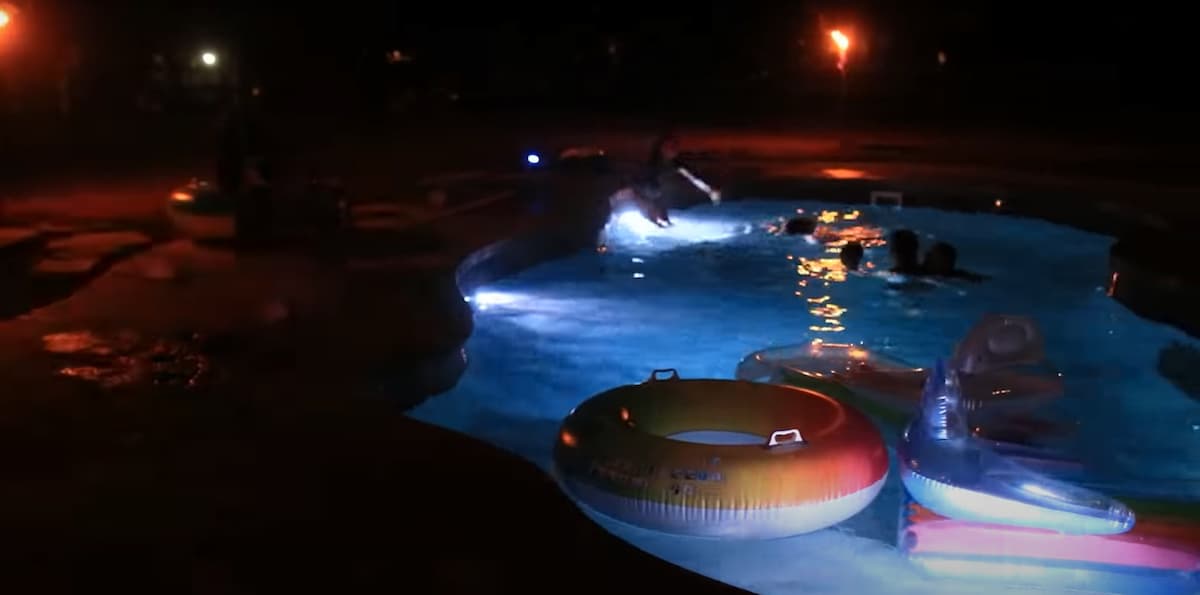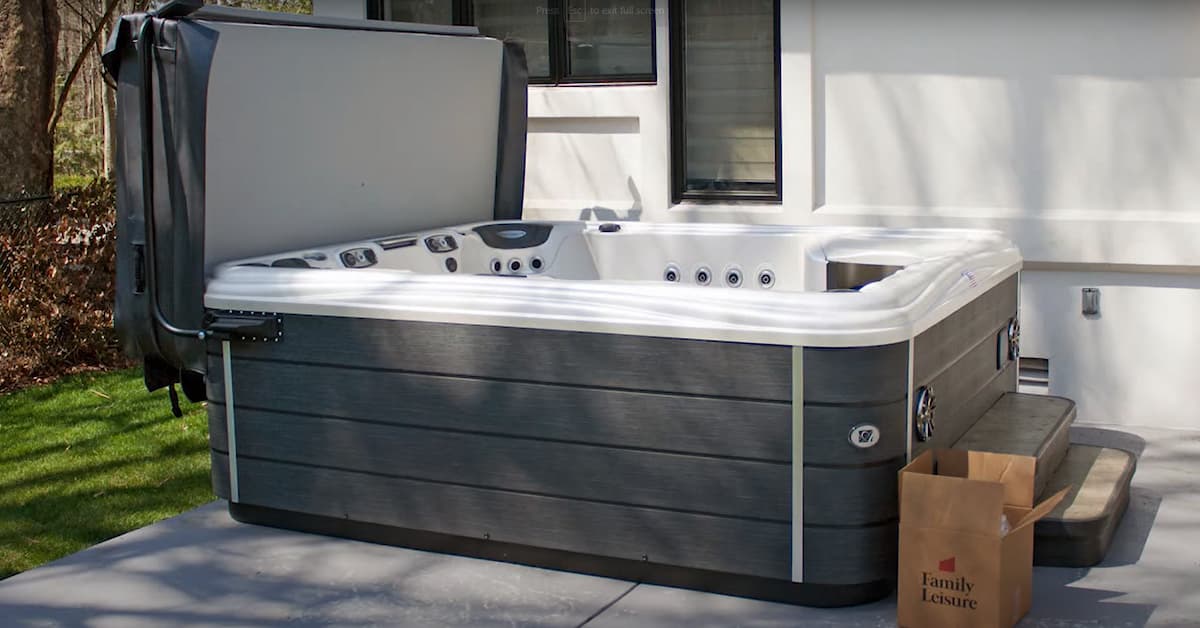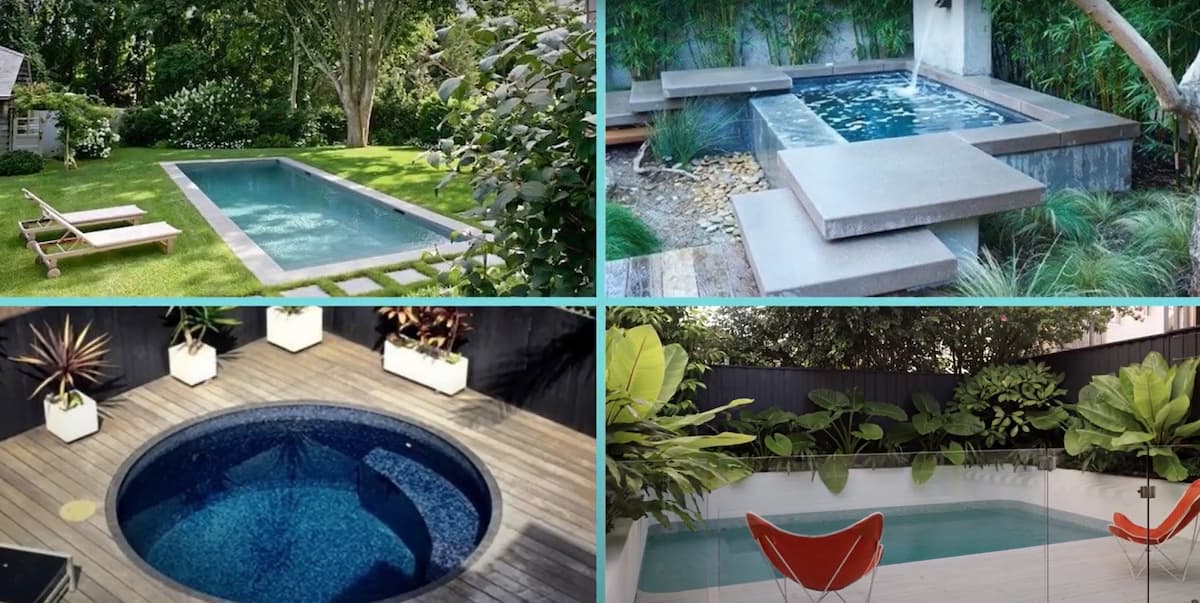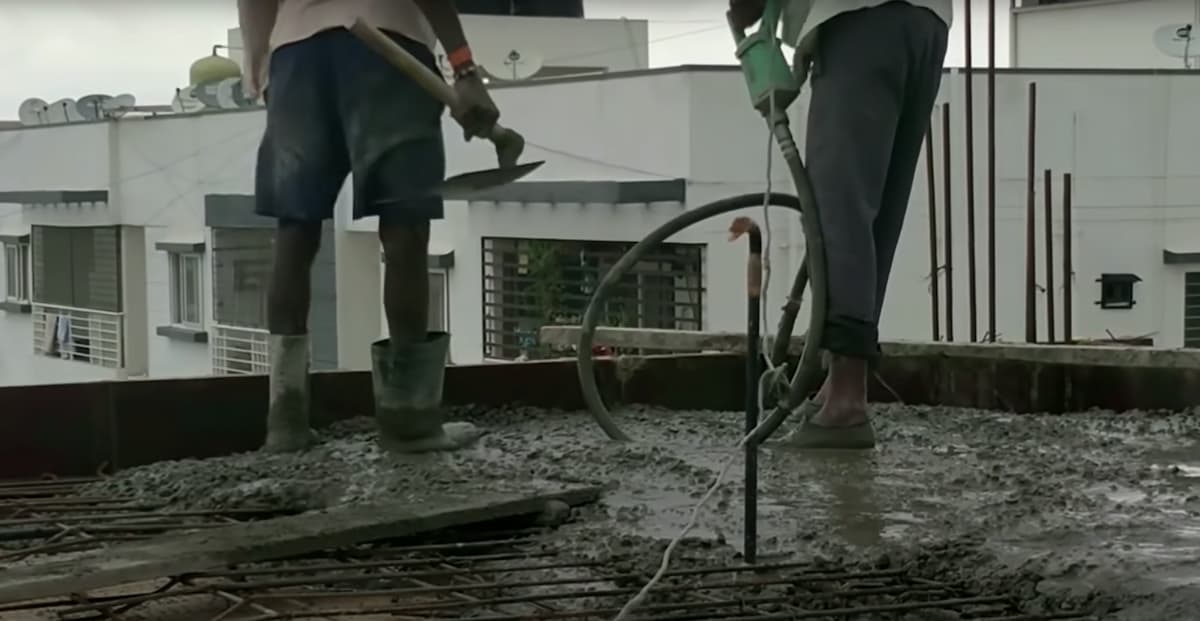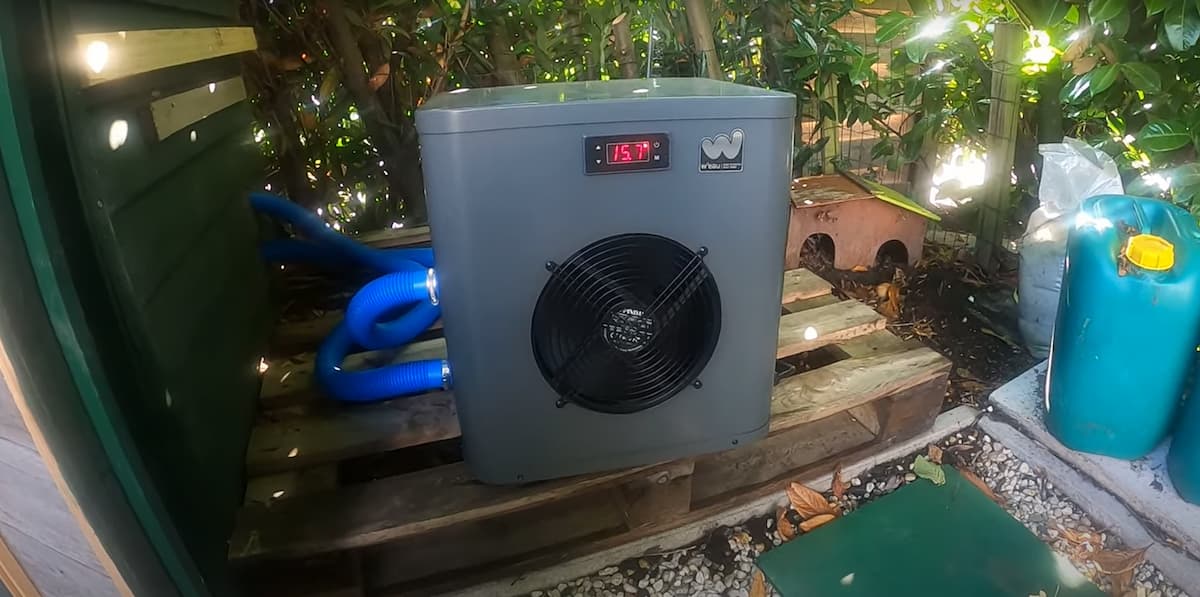
Although the spring and summer months are hot and humid, it is no secret that wintertime swimming enthusiasts may suffer from chilly and unpleasant weather. So you may use your swimming pool all year, you may consider installing a swimming pool heat pump. This article might assist you in better comprehending Swimming Pool Heat Pump Pricing in Australia.
It may be to decrease your carbon footprint or to save money on pool heating if you’re considering putting solar pool heating in. Let’s take a look at different pool heating systems and what to look for when purchasing one.
Currently, only a small fraction of Australian pool owners employ heat pumps. However, that is changing, and for good cause. In fact, there are a plethora of compelling reasons why you could do so. Continue reading to learn more about why it is necessary to switch over from gas heating systems to electric ones in your home.
What are Pool Heat Pumps?
A pool heat pump is a very basic piece of equipment. It’s also highly energy-efficient and a low-cost alternative for heating your pool all year round. In a nutshell, it’s like a refrigerator or an air conditioner but in reverse. Warm, ambient air is sucked into the heat pump via a fan and is then super-heated before being sent to the pool water circulated by the heat pump. The heated pool water is then jetted back into the pool through the regular intake pipe.
That’s easy, isn’t it? So, why didn’t anybody think of this before? In fact, they already had. Heat pumps were created in the 1970s. However, over the last few years, technology has really blossomed. Heat pumps today have a lifespan of around seven to ten years, make no more noise than your regular pool pump at a distance of 1 meter, and are driven by ozone-friendly technologies.
Heat pumps for pool heating are a viable, practical, and cost-effective option for home pool owners. In fact, they are regarded as a renewable energy source.
Pool Heat Pump Cost
The cost of installing a swimming pool heat pump is determined by the electricity. A pool heat pump requires 220V power and its own 50 amp breaker. You’re ahead of the game if you have this service available at your pool. If you need to run electrical past your pool, this price may vary, but it could be in the $300 to $500 range.
Heat pump installation is also more expensive than traditional pool pumps, with costs ranging from $2,800 to $5,000 based on the size of your pool. Electric pool pumps, on the other hand, may be more expensive to purchase than conventional electric or gas heaters, nevertheless, because they are much more energy-efficient, their running expenses are considerably lower. Heat pumps are classed as renewable energy in Australia since they create more energy than they consume. As a result, they can be used to earn Renewable Energy Certificates (REC’s, also known as Small-Scale Technology Certificates or STC’s).
The net effect is that homeowners who use heat pumps may receive a tax credit on their purchase price from the government, but only if they have been installed by a competent and registered professional. Depending on where you live and market conditions, these rebates might be worth around $300-$500. You can claim either by filling out the necessary forms from the Office of Renewable Energy Regulator or simply assigning your rights to get a REC to an agent.
Benefits of Pool Heat Pumps
The advantages of a heat pump pool heater are straightforward enough to understand in comparison to traditional electric or gas pool heaters. Traditional electric or gas heaters create around 0.9 kW of heat for every 1 kW of energy consumed. Electric heat pumps, on the other hand, generate anything from 3 to 6 kW of heat for each 1 kW of power used. The ‘coefficient of performance’ (COP) is a measurement used when comparing heat pumps.
When compared to gas heaters, electric pool pumps have a COP of 5, implying that they require 1 kW of energy to create 5 kW of heating power. Electric pool pumps also cost around 80% less to operate than LPG and roughly 50% less than natural gas.
Also, when compared to solar pool heating systems, electric heat pumps have significant advantages. For one thing, they have a much faster heat-up time than solar. For another, sunshine isn’t required in order for the heat pump to warm your pool. They may continue to work even in ambient air temperatures as low as 7ᵒ C. And, they don’t require roof systems or panels or extensive additional pipework.
Types of Pool Heating
In Australia, the most frequent types of swimming pool heating are powered by solar energy, gas, or electricity. To choose the best pool heating for your needs, consider the amount of energy consumed, efficiency, up-front and running expenses.
Different types of heaters have various operation principles and possess their own set of benefits and disadvantages. These classes, on the other hand, have varying installation and operational expenditures. Having the perfect pool temperature is crucial to having a fun and safe swimming season.
Picking the right heat exchanger is crucial. We’ll look at each type of pool heating in detail, from installation to maintenance, so you can choose the best option for your pool. We can cover the three most common pool heating options:
- Electric heat pump
- Swimming pool gas heater
- Solar heating system

Solar Pool Heating
The most popular technique for lowering energy expenses is to convert from grid power to green energy. Water from the pool circulates through the solar collector until it is heated, whilst solar pool heaters operate in this manner. Solar energy is absorbed by the panels and then transferred to pool water. To be effective, these heaters require a lot of sunshine. The system works by immediately transferring heat. Water from the pool is sent to the roof, where a collector permits circulation to occur, using a digital controller. If there isn’t enough sunshine, though, water can’t be sent to the top. The controller may only allow pool water to flow towards the collector once the pool water reaches specific temperature levels.
Australians can choose from two different types of solar pool heating systems. Strip or rigid solar panel collectors, a system of flexible rubber or plastic tubes that may be placed on nearly any surface and panel collectors, which are semi-rigid and frequently made out of polypropylene but less flexible than strip solar collectors, are more durable and may last longer. You’ll have to spend approximately $3,000 or $6,000 on a system that uses strip collectors or panel collectors. The cost of installing a solar pool heating system generally ranges from $3,000 to $5,000, depending on the size of the swimming pool and the type of installation.
The expense of constructing a solar pool heater ranges from $3,000 to $5,000 for each size. Installation expenses may range from as low as $600 to as much as $2,500. Are you concerned about the financial implications? This system’s energy bills may be low since the cost of running the solar pool heating system during the entire season may typically cost around $300-$400. Although upfront expenses may be daunting, subsequent maintenance and operating expenditures are minimal.
Gas Pool Heaters
A typical gas pool heater uses a unique combustion chamber to burn propane or natural gas. The combustion warms the copper coils, allowing them to warm the swimming water. This is the ideal pool heat for people who live in regions with limited sunshine. It doesn’t require air temperature or sunlight to function. It guarantees that your pools are always heated and ready when you need them most.
Gas pool heaters are not cheap, in case no one had told you that. To run these heaters, you’ll need between $600 and $800 a month. Furthermore, heating the pools for an entire day may use up more gas. Although you may not need to heat your swimming pool all day or every season, the times you use the heater may set you back more than other swimming pool heaters. If you use propane to heat your pool, you’ll need to be careful since it is twice as expensive as natural gas. If all else fails, ask your trustworthy pool builder to connect your heater to the gasoline line. Gas pool heaters are relatively inexpensive to install.
The gas pool or spa heater may cost anywhere from $1,500 to $6,000. Your installation costs may vary depending on the size of the pool and the type of gas heater you select. Heating pool water fast is advantageous for most property owners since it makes them more convenient. They may also function in a wide range of weather conditions, regardless of the season. On the other hand, these heaters are not as energy-efficient as pool solar heating systems. These heaters aren’t as environmentally beneficial as other types because of their combustion emissions. Furthermore, their guarantee period is only five years, which may be a financial problem for homeowners.
Pool Heat Pumps
Swimming pool electric heat pumps use air to warm the pool water. Advanced electric pool heat pumps are now available, with excellent energy efficiency. If you connect your solar panel system to your roof and use solar energy power, you can keep your pool heated for free all year round.
This pool heater consumes less power than the majority of other pool heaters. It is also more efficient than most other pool heaters. This pool heater requires an external power supply, however, it is very effective. In addition, unlike many other pool heaters, it may be operated or altered. But how do electric pumps transmit heat from the environment to the water? In reverse, similar to air conditioners, these pumps utilize this technology. They take a large quantity of air from the environment and remove heat from it. After being heated by the heating unit, the collected heat is carried to pool water via the conduit.
Heat pumps cost anywhere from $3,000 to $10,000. The cost of installation is included in this figure. On average, you’ll need between $200 and $500 for a monthly operation with a pool cover. Heat pumps that are manufactured by reputable companies can last anywhere from 10 to 20 years. They’re energy-efficient and utilize the surrounding air, making them one of the most energy-efficient heating systems available.
Solar Pool Heating Cost
The cost of solar pool heating is determined by a number of things, including:
- The pool’s size
- The type of heating system you choose depends on your budget and needs.
- Solar panels could be positioned according to your needs.
- The number of panels you require might be determined by your local climate, which may influence the quantity of solar power available.
It’s vital not to cut corners when it comes to the size of your solar pool heating system. The price may be greater for a bigger pool, but if you don’t get the right amount for your pool, you’ll be dissatisfied. Solar panel costs range from about:
- For a 30-cubic-metre pool (17 panels), you’ll pay $2750.
- A 45-cubic-metre pool with 36 panels may set you back $4550
- A standard pool might set you back $6,350 for a 60-cubic-metre enclosure (48 panels)
A heat pump is rated in kilowatts. The amount of power needed by a larger pool is greater. You’ll spend around:
- It costs from $3600 for a 9kW heat pump to heat a 30 m3 pool.
- To heat a 45-cubic-metre pool with a 13kW heat pump, expect to pay between $4400 and $5500.
- A heat pump costs $6900 for a 21kW heat pump to heat a 60 cubic metre pool
The systems are priced separately. The cost of installation may vary depending on the installer and other factors. Get quotes from at least three local contractors to learn more about your choices and costs.


